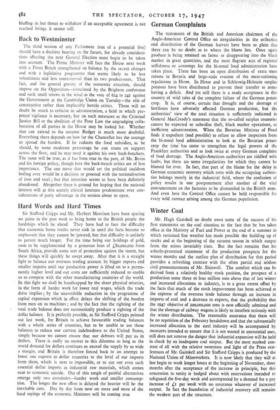Back to Westminster
The third session of any Parliament (out of a potential five) should have a decisive bearing on the future, for already considera- tions affecting the next General Election must begin to be taken into account. The Prime Minister will face the House next week with a Front Bench strengthened on balance by the recent changes and with a legislative programme that seems likely to be less voluminous and less controversial than its two predecessors. That fact, and the general gravity of the economic situation, should impose on the Opposition—stimulated by the Brighton conference and such small straws in the wind as the vote of 624 to 242 against the Government at the Cambridge Union on Tuesday—the role of constructive rather than implacably hostile critics. There will no doubt be much to criticise in administration, a field in which per- petual vigilance is necessary, but on such measures as the Criminal Justice Bill or the abolition of the Poor Law the ungrudging colla- boration of all parties in the House may be looked for. Whether that can extend to the autumn Budget is much more doubtful. Everything there depends on how far the Chancellor has the courage to spread the burden. If he reduces the food subsidies, as he should, by some moderate percentage he can count on support across the floor, and he may need it against his own back-benchers. The same will be true, as it has been true in the past, of Mr. Bevin and his foreign policy, though here the back-bench critics are of less importance. The one move that would set the political cauldron boiling over would be a decision to proceed with the nationalisation of iron and steel ; but that intention seems to have been definitely abandoned. Altogether there is ground for hoping that the national interest will at this acutely critical juncture predominate over con- siderations of party advantage in the session about to open.


































 Previous page
Previous page